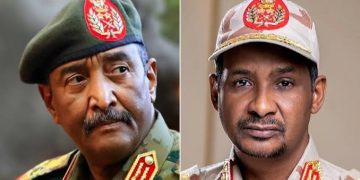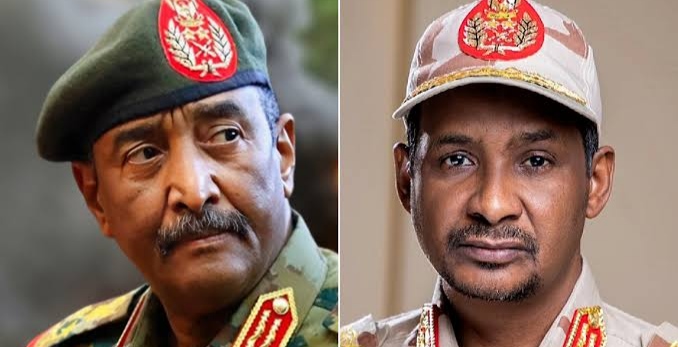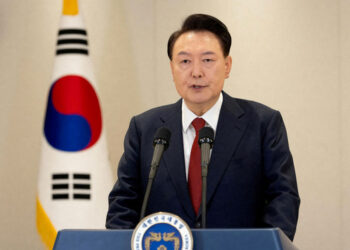By John Ikani
Sudan has been plunged into chaos as a power struggle between the army and a notorious paramilitary force, the Rapid Support Forces (RSF), has erupted in the capital, Khartoum.
The clashes have resulted in at least 25 deaths and 183 injuries, according to the Sudanese Doctors’ Union, while a journalist from the Washington Post newspaper reports 30 dead and nearly 400 injured, citing a UN document.
The violence has rocked the city, with residents dodging gunfire as rival forces battled for control of key sites such as the presidential palace, state TV, and army headquarters.
The conflict between the army and the RSF has been simmering for some time and was sparked by tensions over a proposed transition to civilian rule.
Both sides claim to control the airport and other strategic locations in the city, and the army says it has launched airstrikes on RSF bases.
Meanwhile, the country’s air force has told residents to remain in their homes while it conducts a full aerial survey of areas of paramilitary activity.
Battles have also been reported elsewhere in the country, including in cities in the Darfur region.
What we know about the power struggle
Following the military coup in October 2021, Sudan’s governance has been in the hands of a council of generals, with two key military figures at the center of a growing dispute.
At the helm of the armed forces and effectively the country’s president is Gen Abdel Fattah al-Burhan, while his deputy and the leader of the Rapid Support Forces (RSF), Gen Mohamed Hamdan Dagalo – or Hemedti – also wields significant influence.
Despite being on the same side of the coup, al-Burhan and Hemedti have differing views on the country’s future direction and the proposed transition to civilian rule.
This has led to tensions between the two leaders and their respective camps.
A major point of contention has been the integration of the RSF into the national army, with questions arising as to who would assume command of the newly-formed force.
The RSF has been accused of committing war crimes and atrocities, particularly in the conflict in Darfur that began in 2003 and has left hundreds of thousands dead.
Western powers and regional leaders had urged the two sides to de-escalate tensions and to go back to talks aimed at restoring civilian rule.
There had been signs on Friday that the situation would be resolved, but the latest violence has dashed hopes for a peaceful resolution.
Gen Dagalo has said that his troops will keep on fighting until all army bases are captured, while the armed forces have ruled out any possibility of negotiations or dialogue “until the dissolution of the paramilitary RSF.”
Collateral damages
The situation in Khartoum remains tense, with residents in lockdown and many schools closed.
Videos and photos posted on social media show black smoke rising over the city, and there are reports of armoured vehicles in the streets.
The unrest has also impacted international travel, with Saudia and EgyptAir suspending flights to Khartoum and neighbouring Chad closing its border with Sudan.
Eyewitnesses have described scenes of panic and fear, with people taking shelter in their homes as gunfire echoes through the streets.
A British-Sudanese doctor visiting relatives in Khartoum told newsmen that she and her family have no electricity, it is hot, and they cannot afford to open the windows due to the deafening noise.
Another eyewitness reported ongoing shooting and said that people are staying indoors, fearing for their safety.
International community reacts
The situation has drawn international condemnation, with the UK, the US, and the EU all calling for an immediate end to the fighting.
US Ambassador John Godfrey said he “woke up to the deeply disturbing sounds of gunfire and fighting” and is currently sheltering in place with the Embassy team.
Russia’s embassy has also expressed concern about the “escalation of violence” and urged a ceasefire.




































